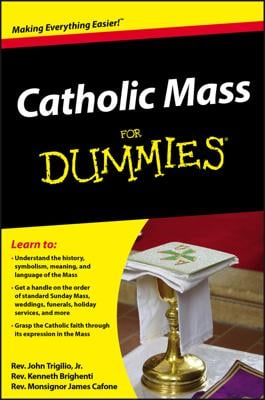An annulment is commonly and incorrectly called a "Catholic divorce." The differences between divorce and annulment can be confusing to Catholics and non-Catholics alike — especially when remarriage is a possibility. Divorce and annulment aren't the same thing; they differ in two ways:
-
First, divorce is a civil law decree from the state, whereas an annulment is a canon law decree from the Church. In other words:
-
The state issues a marriage license; and the state issues a divorce decree.
-
The Church celebrates the Sacrament of Matrimony; and only the Church can issue a Decree of Nullity (otherwise known as an annulment). The Church does not believe in divorce.
-
-
The second is the existence of the marriage after a divorce or annulment:
-
A civil divorce basically says that what was once a marriage is no longer a marriage. The marriage took place but ended. A previously married couple no longer has the legal obligations of husband and wife.
-
An annulment, on the other hand, basically says that the Sacrament of Matrimony never took place to begin with.
-
Civil divorce ends a civil marriage; a Church annulment declares that the Sacrament of Matrimony didn’t occur from day one.
Keep in mind that Church annulments are not a form of divorce and have no affect whatsoever on the legitimacy of children, because that’s a purely legal (civil) matter. Annulments don’t make the children born of that union illegitimate. Annulments declare that a marriage was never a valid sacrament in the first place even if both parties entered into it with good faith and intentions.
Reasons for annulment
The main reason for getting an annulment is that the sacrament of marriage wasn't valid. In other words, if one or both spouses didn’t intend to enter a permanent, faithful, and fruitful (if God wills it) union, then that deficiency renders the marriage invalid.
Even though a couple gets married in a Catholic church by a priest or deacon and has every intention of entering into a valid sacrament, other factors can greatly obstruct the validity anyway, even unknowingly and unintentionally. Who is at fault, if anyone, isn’t the issue. The matter at hand is whether a supposed valid marriage is in fact invalid for some serious reason. If a major impediment was present at the time of the wedding, then the sacrament of marriage is invalid, and the man and woman are free to marry someone else validly for the first time.
Aside from a bride or groom intentionally not wanting to enter a permanent, faithful, and fruitful union, another impediment would be if either person was incapable of assuming the duties and obligations of Christian marriage due to a severe addiction to drugs or alcohol or some serious psychological disorder, which was present but unknown to anyone at the time of the wedding.
Some other reasons for annulment of a marriage include mental incapacity, bigamy, incest, force or grave fear, and refusal or inability to consummate the marriage.
Can you remarry?
If a person was married validly and then divorced but never obtained an annulment, then that person is still married in the eyes of the Church. He or she cannot validly marry again in the Catholic Church.
Remarriage isn't out of the question for Catholics:
-
Like the Sacraments of Baptism, Confirmation, and Holy Orders, the Sacrament of Matrimony can take place only once, unless one spouse dies. Due to the lifelong commitment that’s required for the Sacrament of Matrimony, Catholics can marry only someone who’s widowed or who wasn’t married before.
-
If a person was previously married and the spouse is alive, it must be demonstrated that the marriage was invalid, so the previous union can be declared null and void through an annulment. If that happens, both parties are free to marry someone else — the Church hopes validly this time.

